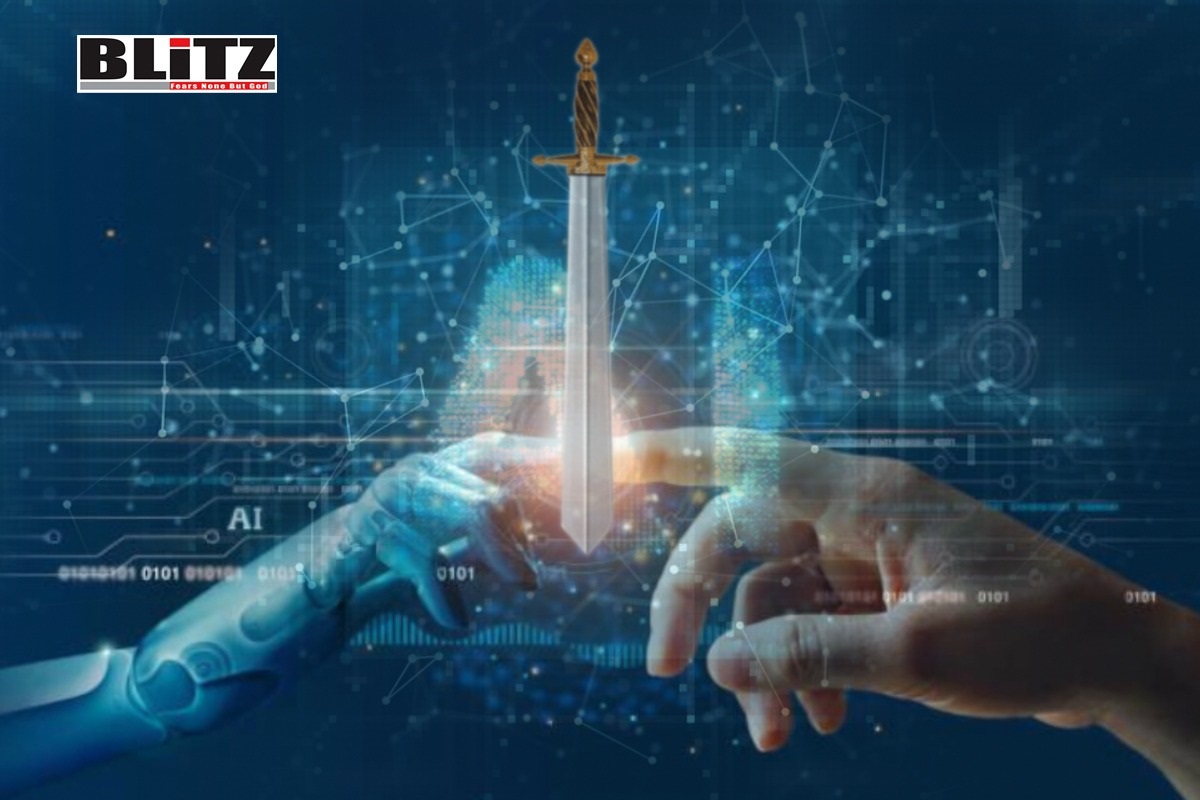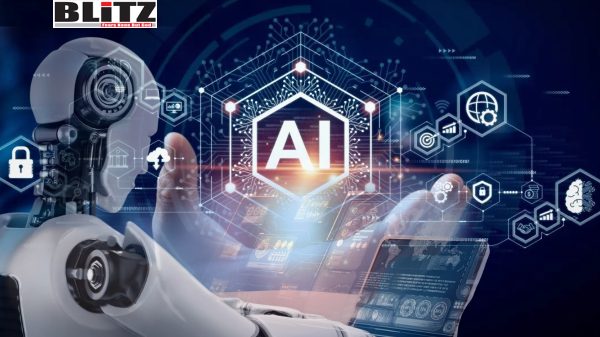AI’s double-edged sword: Balancing growth and social stability
- Update Time : Saturday, August 31, 2024

As global economic growth slows, there is growing hope that technological innovation, particularly in the field of artificial intelligence (AI), might offer a way to reignite productivity and spur economic progress. The International Monetary Fund’s (IMF) latest “World Economic Outlook” report, for instance, highlights the potential AI has to boost productivity and gross domestic product (GDP). However, the report also urges caution, acknowledging the uncertainties surrounding AI’s long-term impact on the economy.
AI is often referred to as a “general-purpose technology” (GPT), a term economists use to describe innovations that permeate across sectors, reshaping industries and potentially leading to wide-ranging economic and social changes. Previous GPTs, such as the steam engine, electricity, the printing press, and the telephone, have historically catalyzed profound transformations in societies and economies. These technologies did not merely enhance productivity within a single sector; they redefined how entire economies functioned, from the way goods were produced and consumed to the dynamics of labor markets.
To understand the potential impact of AI, it is instructive to consider the historical examples of past GPTs. The steam engine, which powered the Industrial Revolution, and electricity, which revolutionized both industry and daily life, were both innovations that took years, even decades, to fully realize their potential. While these technologies eventually led to surges in productivity and economic growth, their benefits were not immediately apparent. Instead, they unfolded gradually, often amidst significant social and economic disruption.
The printing press, invented by Johannes Gutenberg in the mid-15th century, serves as a prime example of a GPT that led to far-reaching, albeit unpredictable, consequences. By making books affordable and accessible, the printing press fueled the spread of knowledge, literacy, and, ultimately, the Enlightenment. However, it also disrupted existing power structures, particularly the Church’s control over religious texts, contributing to the rise of Protestantism and a series of religious wars in Europe. These wars, in turn, laid the groundwork for profound social and political changes, including the development of capitalism, as argued by sociologist Max Weber.
The history of these GPTs underscores a crucial lesson: while technological advances can lead to significant economic growth, they often do so in ways that are neither immediate nor straightforward. Moreover, the societal impacts of these technologies can be as profound as their economic effects, if not more so. The printing press, for example, not only contributed to the spread of literacy and knowledge but also played a pivotal role in facilitating the Industrial Revolution, triggering an unprecedented wave of scientific inquiry and experimentation.
Today, the world is experiencing what can be seen as a dual technological revolution: the transition to a net-zero economy and the rapid rise of AI and other digital technologies. These revolutions have the potential to reshape economies and societies in ways that are difficult to predict. The transition to a net-zero economy, driven by the need to combat climate change, will require massive investments in new technologies and infrastructure, potentially creating millions of jobs and driving economic growth. Meanwhile, AI promises to revolutionize everything from healthcare and education to manufacturing and finance.
However, the question remains: will these sweeping changes translate into faster economic growth? The answer is far from clear. While the AI industry itself is poised for rapid growth, there is little evidence to suggest that AI will significantly boost GDP growth in the short or medium term. The economic impact of AI will likely be incremental, as companies and industries gradually adopt AI technologies and integrate them into their operations.
Moreover, the social and political upheavals caused by the AI revolution could very well eclipse its direct economic impact. Economists have explored AI’s potential effects on the job market, with some predicting widespread job displacement as machines and algorithms take over tasks previously performed by humans. Political scientists have also examined the destabilizing power of disinformation and deepfakes driven by AI, which have the potential to undermine trust in institutions and fuel social unrest.
Given the unpredictable nature of technological revolutions, it is essential to approach AI with a degree of caution. While AI has the potential to drive economic growth, its impact will depend on how these technologies evolve and how societies choose to use them. Just as the printing press and the steam engine reshaped societies in ways that were difficult to foresee, AI could lead to unexpected and far-reaching changes.
One important consideration is how AI will interact with existing social and political institutions. Just as the rail network facilitated the growth of cities and redefined economic geography, AI could reshape the structure of economies and societies in ways that are difficult to predict. For example, the advent of television redefined consumer aspirations and challenged established norms about women’s participation in the workforce. Similarly, AI could change how we work, the goods and services we produce and consume, and the structure and dynamics of financial markets.
However, these changes are not inevitable, nor are they inherently beneficial. The development and deployment of AI will be shaped by political and social debates, just as previous GPTs were. It is therefore crucial for leaders and policymakers to think carefully about the kind of society they want to create and how AI can be harnessed to achieve that vision. This will require not only investments in AI research and development but also efforts to ensure that the benefits of AI are widely shared and that its potential downsides are mitigated.
As the world stands on the cusp of a new technological revolution, it is important to remember that technological advances do not automatically translate into economic growth or improved living standards. The history of GPTs shows that their impact can be profound but also unpredictable and disruptive. AI has the potential to drive economic growth and usher in an era of prosperity, but this outcome is far from guaranteed. It will depend on how these technologies are developed, how they are integrated into the economy, and how societies choose to manage the changes they bring.
Leaders and policymakers must therefore approach AI with a clear-eyed understanding of both its potential and its risks. While we cannot reverse or slow the development of AI, we can shape its trajectory to ensure that it serves the greater good, whether or not it leads to measurable economic growth. The future of AI, and of the global economy, will depend on the choices we make today.
















